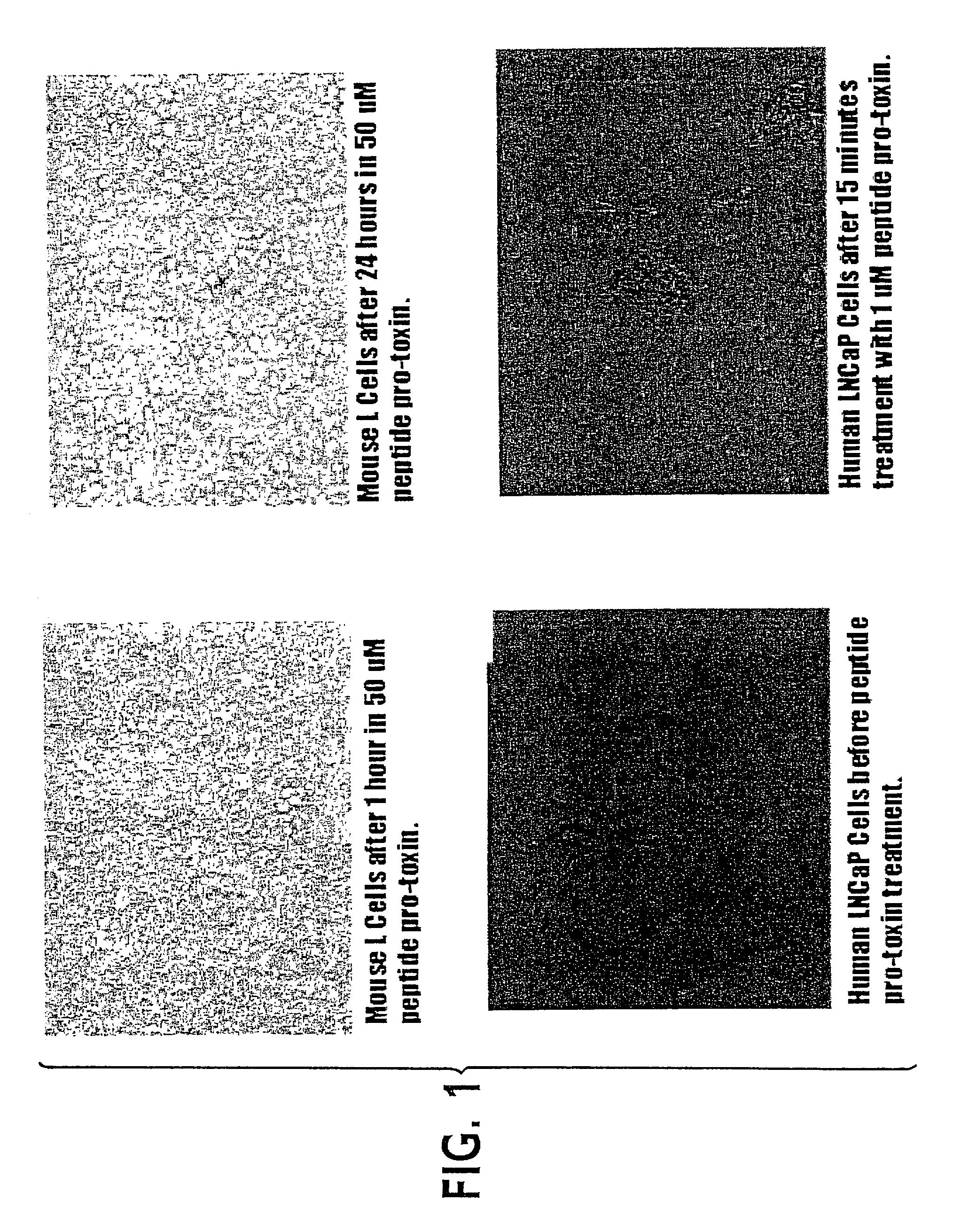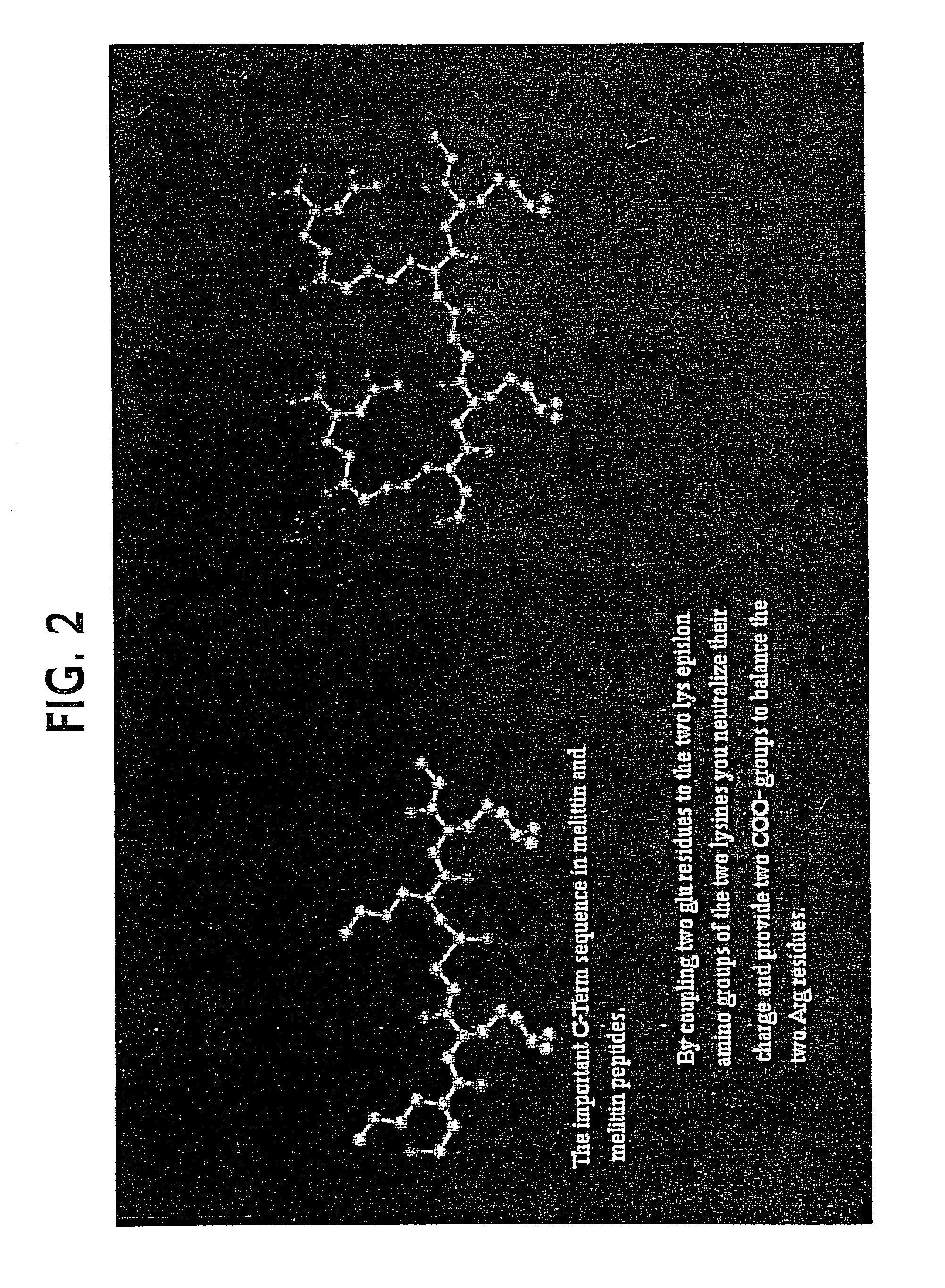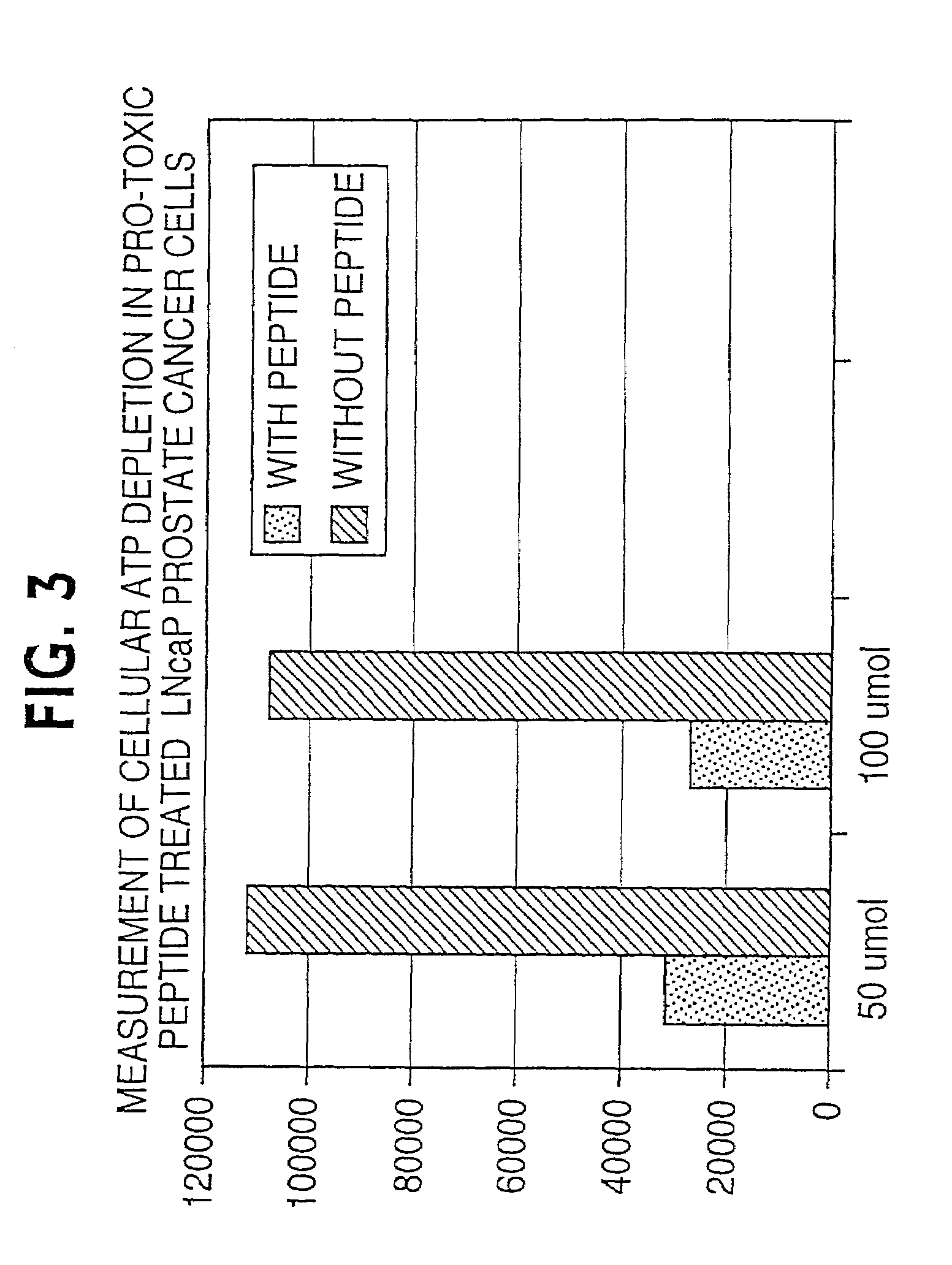Lytic peptide prodrugs
- Summary
- Abstract
- Description
- Claims
- Application Information
AI Technical Summary
Benefits of technology
Problems solved by technology
Method used
Image
Examples
example 1
Preparation of γ-glutamate-masked amoebapore analog
[0100]The twenty-five amino acid, C-terminal amidated, amoebapore cytolytic peptide was synthesized by standard solid phase peptide synthesis, except that the ε amino group of the C-terminal lysine was blocked with a different blocking group from that used to block the ε-amino groups of the other two lysine residues in the peptide, so that the terminal ε block could be selectively removed. After selective removal of the blocking group from C-terminal lysine ε amino group, this amino group was linked to the γ carboxyl group of a first glutamate residue with blocked α amino and carboxyl groups by solution phase synthesis. This results in the addition of a γ glutamate linked side-chain glutamic acid residue.
[0101]The α amino group of this first glutamic acid residue was de-protected and a second glutamate residue was then linked to the de-protected α amino group via a γ glutamate linkage between the γ carboxyl group of the second gluta...
example 2
Assay for the Cytolytic Activity of the Pore-forming Toxins
[0104]For cell lysis assay, 106 LNCaP prostate tumor cells were cultured in 48-well plate in 200 μl culture medium containing different concentrations of the peptide. The culture medium for LNCaP cell was RPMI 1640 medium with 2 mM L-glutamine adjusted to contain 1.5 g / L sodium bicarbonate, 4.5 g / L glucose, 10 mM HEPES, 1.0 mM sodium pyruvate, 90%; fetal bovine serum 10%. The cells were treated with peptide in a CO2 incubator for one hour.
[0105]As seen in FIG. 1, human prostate cancer cells (LNCaP) are completely lysed after 15 minutes in 50 μM amoebapore helix 3-γ-Glu-γ-Glu, while mouse L-cells remain unaffected after 24 hours under the same conditions.
[0106]In order to obtain a more quantitative result, the assay was repeated and decrease in ATP levels was used as a surrogate marker for live versus dead cells. ATP plays a central role in the energy status of the cell and the regulation of enzymatic activity. The intracellu...
example 3
Specificity for Additional Tumor Types and Lack of Toxicity
[0108]This example demonstrates that the inventive γ-glutamate-masked cytolytic peptides have specificity for cancer cells other than those expressing PSMA. This experiment, utilized a melittin analog having A [ε-γ]-Glu-[α-γ]-Glu at each of lysines 21 and 23: NH2-Gly-Ile-Gly-Ala-Val-Leu-Lys-Val-Leu-Thr-Thr-Gly-Leu-Pro-Ala-Leu-Ile-Ser-Trp-Ile-Lys([ε-γ]-Glu-[α-γ]-Glu)-Arg-Lys([ε-γ]-Glu-[α-γ]-Glu)-Arg-Gln-Gln-COOH. (SEQ ID NO: 19) Two prostate tumors (PNCap and DU0145), two ovarian tumors (HeLa and SK-OV-3), one lung tumor (LLC 1) and one melanoma (B 16) were tested. Cultured cells were treated with 1, 10, 50 or 100 μM peptide. Results, depicted in FIG. 4, show strong lytic activity against all tumors.
[0109]The same analog was used to treat a PSMA-expressing prostate cells (LNCaP-FCG), ovarian cancer cells (HeLa) or prostate cells not expressing PSMA (PC3). While 25 and 50 mM concentrations were highly toxic to the PSMA-express...
PUM
| Property | Measurement | Unit |
|---|---|---|
| Composition | aaaaa | aaaaa |
| Amphipathicity | aaaaa | aaaaa |
Abstract
Description
Claims
Application Information
 Login to View More
Login to View More - R&D
- Intellectual Property
- Life Sciences
- Materials
- Tech Scout
- Unparalleled Data Quality
- Higher Quality Content
- 60% Fewer Hallucinations
Browse by: Latest US Patents, China's latest patents, Technical Efficacy Thesaurus, Application Domain, Technology Topic, Popular Technical Reports.
© 2025 PatSnap. All rights reserved.Legal|Privacy policy|Modern Slavery Act Transparency Statement|Sitemap|About US| Contact US: help@patsnap.com



